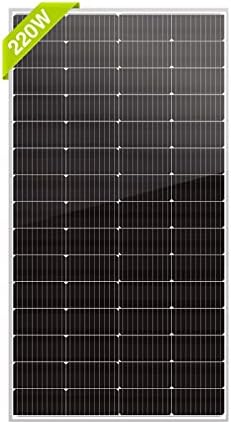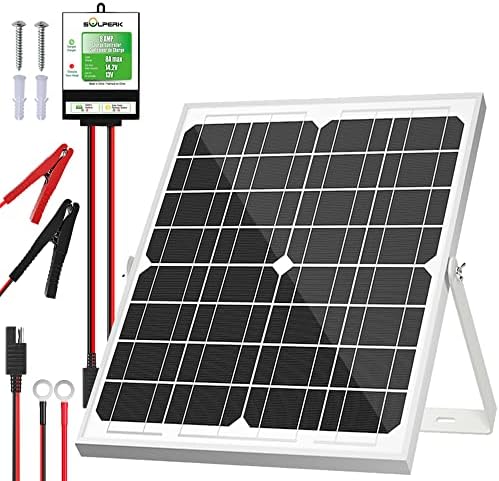# Sustainable Living: The Rise of Off-Grid Solar Solutions
Picture this: the warm glow of the sunset, the gentle rustle of leaves, and the hum of bees buzzing about their business. The day winds down as you flick the switch on your solar-powered lantern. With a contented sigh, you lean back in your chair, sipping on freshly brewed herbal tea, grateful for the simplicity and serenity of the off-grid lifestyle. Living off the grid is not just a trend; it’s a lifestyle revolution that meshes sustainability with independence. Thanks to advances in solar technology, more folks are embracing renewable energy, steering clear of utility bills, and indulging in the sheer beauty of self-sufficiency.
## The Allure of Off-Grid Living
The concept of off-grid living has been around for centuries, but it’s gaining traction in today’s world. With climate change looming and the desire for a more sustainable lifestyle on the rise, people are turning to the idea of breaking free from modern utility dependencies. This lifestyle allows individuals and families to produce their own energy, grow their own food, and enjoy the freedom of self-sustainability.
### Why Solar?
The sun is a majestic ball of energy, and harnessing its power ranks as one of the most effective ways to live sustainably off the grid. Solar power systems convert sunlight into electricity, allowing us to run appliances, charge devices, and light our homes without relying on fossil fuels or traditional electric companies. The rise of solar technology has made it increasingly accessible, economically viable, and applicable in various environments—from rural landscapes to suburban backyards.
### Solar Solutions Making Waves
#### Solar Panels: The Heart of the System
At the core of any off-grid solar setup are the solar panels. Modern panels are more efficient than ever, with advancements allowing for greater sunlight absorption and conversion rates. They can be mounted on rooftops, ground-mounted, or even integrated into building materials. Types like monocrystalline, polycrystalline, and thin-film solar panels each offer unique benefits, catering to diverse energy needs and budgets.
#### Battery Storage: Power When You Need It
What happens when the sun sets? This is where battery storage systems come into play. These systems store the energy generated during sunny days for use at night or during cloudy weather. Lithium-ion batteries have surged in popularity due to their efficiency and lifespan, yet more eco-friendly options, such as lead-acid and saltwater batteries, are gaining traction among eco-conscious consumers.
#### Inverters: Converting the Current
Inverters are the unsung heroes of off-grid solar systems, converting the direct current (DC) generated by solar panels into alternating current (AC) that powers most household appliances. With options ranging from basic sine wave inverters to sophisticated hybrid designs, there’s an inverter to fit every setup.
### The Benefits of Going Off-Grid
1. **Financial Freedom**: The most immediate benefit of having an off-grid solar system lies in the potential for lower energy bills. After the initial installation, maintenance costs are minimal, allowing for greater savings over time.
2. **Energy Independence**: Off-grid living means breaking free from factors like rising energy costs and utility company regulations. You effectively control your energy production and consumption, leading to peace of mind regarding fluctuating energy prices.
3. **Environmental Impact**: Harnessing solar energy significantly reduces your carbon footprint. By opting for renewable energy, you’re contributing to a cleaner planet, preserving it for future generations.
4. **Resilience**: Mother Nature can be unpredictable, and electricity outages can disrupt daily life. An off-grid solar solution provides energy security, enabling you to remain self-reliant regardless of external circumstances.
### Designing Your Off-Grid Solar System
Creating your own off-grid solar solution can seem daunting, but breaking it down into manageable steps can make it an accessible endeavor. Here’s a quick primer:
1. **Assess Your Energy Needs**: Begin by evaluating how much energy you consume. Take into account appliances, heating systems, and devices you plan to use. This will help determine the size of solar panel and battery systems you’ll need.
2. **Choose Your Components**: Research the various types of solar panels, inverters, and batteries available. Select components that align with your energy needs, budget, and installation preferences.
3. **Consider Installation**: Depending on your skill set, you may choose to install the system yourself or hire professionals. DIY installations can save on labor costs, but make sure to follow safety protocols and local regulations.
4. **Maintain Your System**: Once installed, regular maintenance of your system will ensure optimal efficiency. Periodic cleaning of solar panels and inspections of the inverter and batteries will prolong the lifecycle of the system.
### Pro Tips for Success
– **Start Small**: If diving straight into an off-grid lifestyle feels overwhelming, begin with smaller projects like solar water heaters or solar lighting to ease into the transition.
– **Monitor Usage**: Utilize energy monitoring systems to track consumption in real-time—this insight can help you make smarter adjustments for energy efficiency.
– **Diversify Your Resources**: While solar is a fantastic option, consider incorporating other renewable energy sources such as wind turbines or micro-hydro systems for a more balanced approach.
– **Team Up with the Community**: Join local and online off-grid communities. Sharing experiences, advice, and resources can enhance your journey toward sustainable living.
### Global Perspectives on Off-Grid Solar Solutions
The rise of off-grid solar technology is not merely a local phenomenon; it has captivated the global community as well. Countries in Africa are increasingly adopting solar solutions to gain access to electricity, reducing their reliance on expensive and unstable grids. In developed nations, people are converting to solar energy not only for environmental reasons but also for economic benefits, helping to create a more sustainable future.
### Challenges and Solutions
While the benefits of off-grid solar living are numerous, it’s essential to acknowledge that challenges exist. Initial investment costs may deter some individuals from pursuing this path. However, with various financing options such as solar loans, leases, and tax incentives, barriers are being lowered.
Another challenge is the operational and maintenance knowledge that is needed. Thankfully, the wealth of online resources, workshops, and community gatherings provide valuable insights that can empower anyone to adeptly manage their solar systems.
### The Future of Off-Grid Solar Living
As solar technology advances, the future is bright for off-grid living. Emerging innovations—like solar tracking systems that maximize energy capture and building-integrated photovoltaics (BIPV)—are making solar solutions not only more efficient but also more aesthetically pleasing. The push for sustainable energy sources is being embraced by both individuals and governments, and as awareness increases, so does the drive toward sustainable living.
### Conclusion: Embrace the Change
Living off the grid isn’t just a dream for a few romantic idealists; it’s becoming a practical reality for everyone. With the right tools, knowledge, and community support, embracing a sustainable lifestyle through off-grid solar solutions is both achievable and immensely rewarding. So, grab those sunbeams, harness renewable energy, and step into a brighter, more sustainable future today.
Whether you’re a curious beginner or a seasoned pro, remember: the journey toward sustainable living is not just about energy; it’s about a mindset committed to caring for our planet and fostering a sense of community along the way. Go ahead, let the sunshine in!



